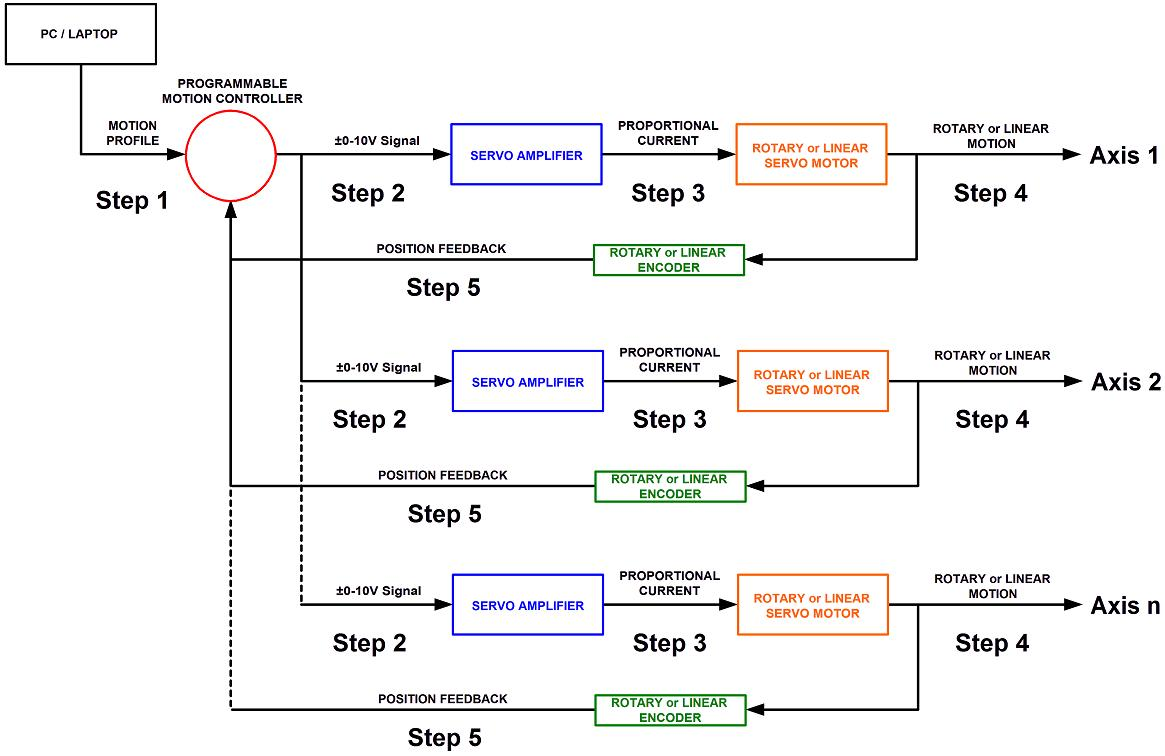MULTI AXIS: LINEAR MOTOR DRIVEN POSITIONING STAGE

NOTES:
-The program or motion profile will have specific parameters for each axis of motion. Parameters such as speed, acceleration, deceleration, desired position, etc… can be different for each axis.
-The motion controller can simultaneously monitor the feedback of multiple axis for coordinated motion control.
-Depending on the particular motion controller used, the number of independent axis will vary from 2-32 axis of motion.
Step 1. A program or motion profile will be written on a PC or laptop and downloaded to the motion controller. This program will contain parameters such as speed, acceleration, deceleration, PIDs, desired position, etc…
Step 2. Based on the program parameters, the motion controller will send a +/- 10V reference signal to the servo amplifier.
Step 3. The servo amplifier will take the reference input signal and provide the necessary current to generate the required force from the motor to move to the desired position.
Step 4. The motor will move to the desired position at the programmed speed and acceleration.
Step 5: Motor position is sent back to the controller to verify that the desired position has been reached and maintained.
